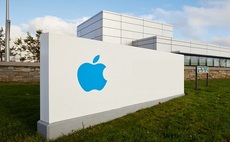Qualcomm executives met over the weekend to plan their defence
Semiconductor company Qualcomm is planning to reject Broadcom's unsolicited $130 billion takeover bid, according to reports. Last week, Broadcom set out its offer to buy the company in a deal th...
To continue reading this article...
Join Computing
- Unlimited access to real-time news, analysis and opinion from the technology industry
- Receive important and breaking news in our daily newsletter
- Be the first to hear about our events and awards programmes
- Join live member only interviews with IT leaders at the ‘IT Lounge’; your chance to ask your burning tech questions and have them answered
- Access to the Computing Delta hub providing market intelligence and research
- Receive our members-only newsletter with exclusive opinion pieces from senior IT Leaders






















